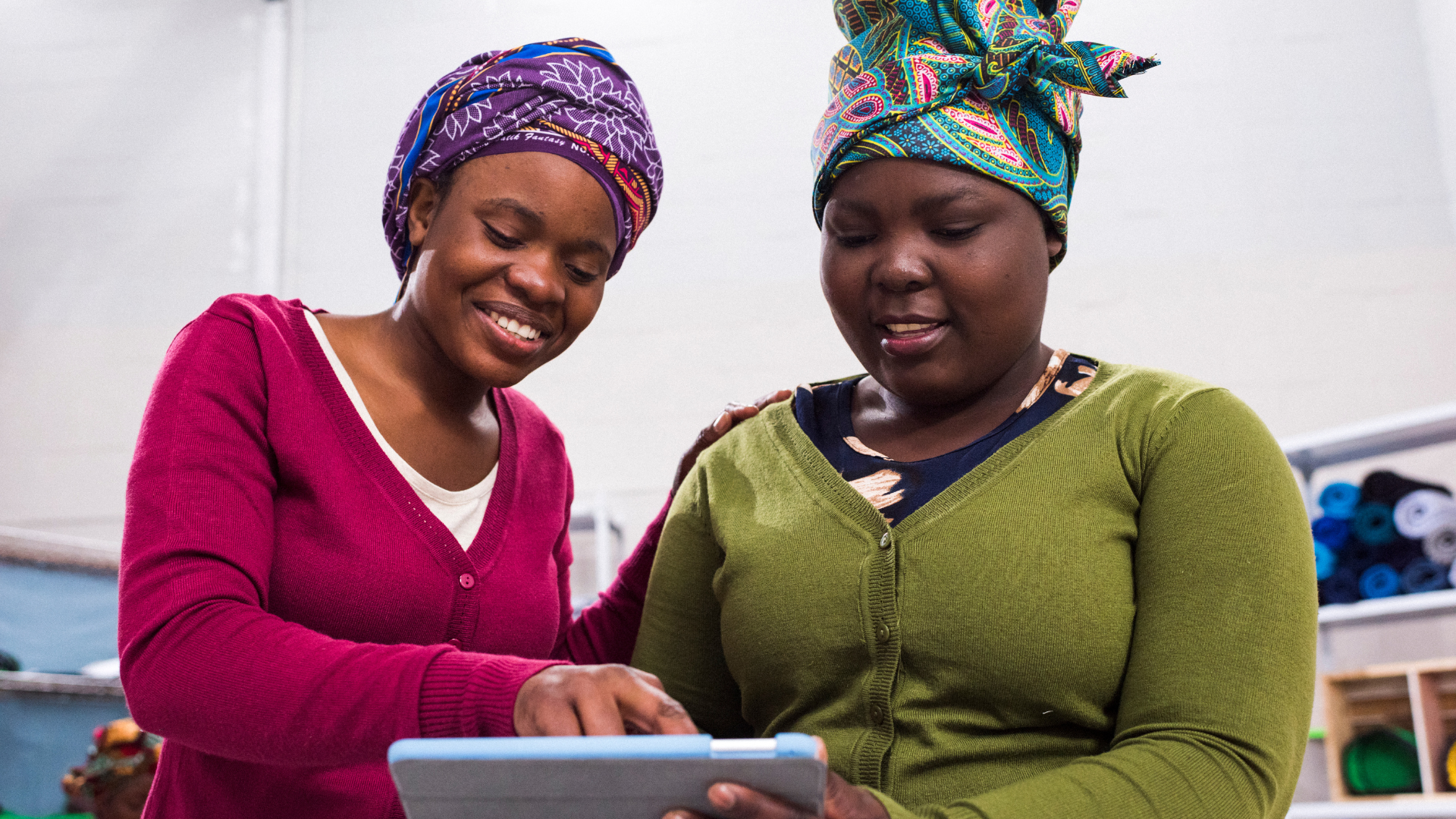
Why Social Entrepreneurs are my Jam?
I click “end meeting,” and I feel this rush of inspiration, and I say, “Wow. I was born to do this.” It’s involuntary. It’s like my Spirit is speaking out loud. And it comes out virtually every time.
That doesn’t mean I don’t feel nervous beforehand; because I do. That doesn’t mean I get the best night of sleep the night before; because I don’t. That doesn’t mean I don’t think the recording is crappy; because I do. I always feel like certain parts sound terrible and need to be edited out.
But, what I know is that social entrepreneurs are my jam. Whether it's a podcast recording, a live group coaching call, or a 1:1 mentoring call, I know that I know that I know, that all my experiences, positive and negative, have led me to this place. Here, with social entrepreneurs, my experiences matter. I’ve never, ever felt that “I was born to do this” feeling anywhere else.
Somehow, I am able to express myself better with social entrepreneurs than I ever can with traditional entrepreneurs or even non-profit leaders. I think it’s the common bond of the tug of heart and profit. It’s so complex. Nearly impossible to explain to outsiders, but social entrepreneurs live it: constantly balancing their love for people and wanting to empower them to build a better life for themselves (vs. doing it for them) and doing the business stuff that funds their life purpose.
I’ve been approached quite a few times about doing business or life coaching. This is where I get stalled in that notion. Most of the time, the reason why people in traditional business are miserable is that their seeking solutions in the wrong place. The missing element is most often “giving” or being a part of something bigger than themselves. They don’t need a new sportscar, a new handbag, a new job, or a new spouse; they need a purpose.
Their heart has a void that can’t be filled with a “thing.” I can’t fix that. Most of the time, they’re so far in the depths of their void that they think they are giving because they support charities and take eco-friendly vacations. Those are good things. But that’s not the point.
Until they work on their heart and get out of their own heads, nothing will change…not with all the coaching in the world. There are some great coaches out there who can really stick with and challenge business people through this process.
That is not me. It makes me crazy to see it. Because, to me, the solution is so clear. By contributing to solving a broader societal issue, we overcome (come over) ourselves. We get out of our heads and into our hearts. It’s all about the heart-work, not just the hard work.

The heart-work is what social entrepreneurs have mastered. They care for others to the depths of their being- perhaps almost too much. It’s the other stuff they need. To them, the other stuff is the hard work.
For many social entrepreneurs, their passion for people propelled them to bypass university. Even if they did go, unless they were blessed to go to a university with a strong social enterprise or social business specialization track, they got a business education, but it doesn’t feel applicable in their version of the “real world.” Whether a social entrepreneur did or didn’t go to university, there is certainly no extra time now to read new business books…or to even know where to begin.
What I’ve learned is that most are crap. Many concepts work for a season. Many formulas work in isolation. Even in traditional business, there rarely seemed to be anything that always applied. Or, it was so overwhelming that I opted just to figure it out my own way.
At one time, I had stacks of Sucess Magazine, which included CDs with book summaries that went unread and unlistened. I’d take one with me to read on my “break,” only to become so overwhelmed with all the to-dos. "I needed to do this." "I should do that." The pressure was so immense. I felt like a failure before page 4. When was I ever going to put all this “sage” advice into practice?
I felt this way, and I was in traditional business, where it’s sort of expected that you keep up with that stuff or at least know what’s out there.
How in the world does a social entrepreneur keep up with this when they are addressing acute systemic global issues for people at level 1 of Maslow’s Hierarchy pyramid trying to meet their basic human needs of food, water, and shelter?
To traditional business people who are “lost,” this is what I’m screaming on the inside… “See, this is what I’m talking about. This is what you’re missing. Focus on helping these social entrepreneurs out - with your money and your mind. Empower them to help others with their Level 1 and 2 needs. The result will be that you won’t care about your Level 3 needs anymore, your Level 4 needs will be met, and you’ll be on your way to Level 5!” Heart-work. Not hard work.
So, how did I discover social entrepreneurs?
I was in China doing some humanitarian work with a team. Full-on non-profit. We crossed paths with another team, which was rare. We were outside of a little restaurant under a tree in the car park. It was a sunny fall-ish day. Still warm, but not stifling. Somehow it came up that I had a business. One of the guys on the other team asked me if I’d heard of this group that was combining business and humanitarian work. I said, “No! I didn’t even know that was a thing.” At that moment, there was a spark in my heart.
Don’t get me wrong; I love full-on humanitarian work. But, the idea of people who did with business, by being business leaders, by helping people help themselves…that really got to me.
So, I set out to meet more of them. Yet, as I look back, it was as if they all came to me. Though I physically went out to visit them, the connections and the opportunities all came to me through random conversations. This was before Google was our go-to problem solver. It was as if the heavenlies were conspiring to help me.
At the time, this was happening mostly in Asia. Most of the business leaders were ex-pats. My friend, Ashley Breitnaur, with whom I went to Rwanda, told me about this guy named Ray who had a bike shop on the Thai border with Myanmar. They taught people from Myanmar how to repair bikes to have for their own transportation or to sell them. Back then, having a bicycle was like having gold. Ray also had Famous Ray’s Burgers, where they taught local Thai and Myanmar people how to make burgers and fries. The locals learned English from Ray’s family as well as the foreign customers who came through town on trips to Myanmar. Ray was just a guy with a huge vision and an even bigger heart. He was giving people better lives by giving them skills training and opportunity.
There was also a guy named Randy who had a factory in China. He and his wife moved there, started a factory, learned Chinese, and now manufacture and export all types of sophisticated products to the US and other places from China. He cares deeply for his staff, gives them safe working conditions, and trains them in skills they can use their whole life to provide for their multi-generation families.
There are lots more Rays and Randys out there in the world. Men and women of all ages and backgrounds have started businesses that offer vocational skills training with shoestring budgets and big hearts for others. Coffee shops and cafes, jewelry and leather accessory design and manufacturing, clothing, handicrafts, socks, ceramics, coconut oil, cocoa processing, and even turbines. If it can be made, there’s a social enterprise that’s either doing it or planning it.

Now, in Africa, we are experiencing an explosion of African nationals who are tackling their own local and continental issues. Bamboo bikes from Ethiopia, soccer/footballs from Uganda, clothing in Sierra Leone, informal education in Liberia, and cultural music promotion in Ghana. My list of social entrepreneur friends goes on and on.
It has taken a while for me to embrace my formal role as a coach, mentor, or Dr. T. With social entrepreneurs, I feel like they are all my peers, like we’re all in it together. Never once have I experienced bias because of my nationality, gender, how I look, my beliefs, or some of my stronger stances like saying, “Most business books are crap!” Age is always a differentiator because, in many cultures, age is the primary measuring stick of respect due a person, regardless of how he or she is as a fellow human. I’m good with that, though. My fine lines tell the tale of years of laughter and tears. Among my social entrepreneur friends, I am certain that my experience matters and nothing has been wasted.


